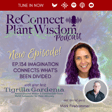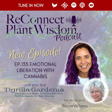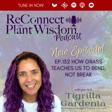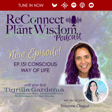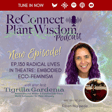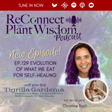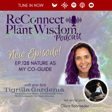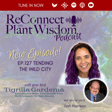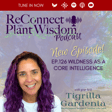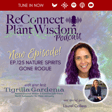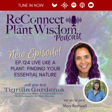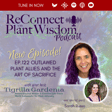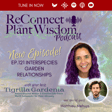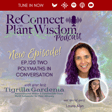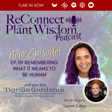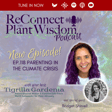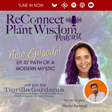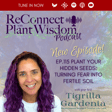
Ep.123 The Myth of No Farms, No Food | Reclaiming Our Role as Ecosystem Engineers
What if everything you’ve been told about food and farming is a myth?
In this conversation with author and journalist Elspeth Hay, we unravel the “No Farms, No Food” narrative and explore how humans can reclaim our place in the ecosystem. From the overlooked nourishment of acorns and chestnuts to the history of colonization and lost commons, this episode reframes humans as keystone species—ecosystem engineers with a vital role to play in regeneration.
✨ Listen + Resources ✨
🌱 Expanded Show Notes
🌱 Join the Naturally Conscious Community
🌱 Feed Us With Trees by Elspeth Hay
What You’ll Learn
🌱 Why the “No Farms, No Food” story is rooted in colonial trauma
🌱 How tree foods like acorns and chestnuts can transform food systems
🌱 Why humans are meant to be ecosystem engineers—like beavers and oaks
🌱 How to begin rediscovering your role in your local ecosystem
👤 Guest Spotlight: Elspeth Hay
Elspeth Hay is a journalist, radio producer, gardener, and author of Feed Us With Trees: Nuts and the Future of Food. Living on Cape Cod, she explores regenerative food systems and how humans can rebuild lost relationships with keystone species like oak. Her work reframes food not as extraction, but as collaboration with the ecosystems that sustain us.
Learn more about Elspeth’s work
✨ Chapters ✨
00:00 Introduction
08:06 Origins of the “No Farm” Narrative
16:19 Historical Shifts in Food Systems
24:48 Modern Challenges in Agriculture
32:53 Community and Local Food Connections
41:04 Cultural Stories About Farming
49:10 Biodiversity and Ecosystem Roles
57:10 Closing Reflections
59:43 Get Feed Us with Trees
🔗 Connect & Explore More
🌿 Website
🌿 Contact
🌿 Shop Eco-Conscious Partners
Socials
📸 Instagram
📘 Facebook
💼 LinkedIn
▶️ YouTube
🎵 Credits
Opening + Closing music by @Cyberinga and Poinsettia

